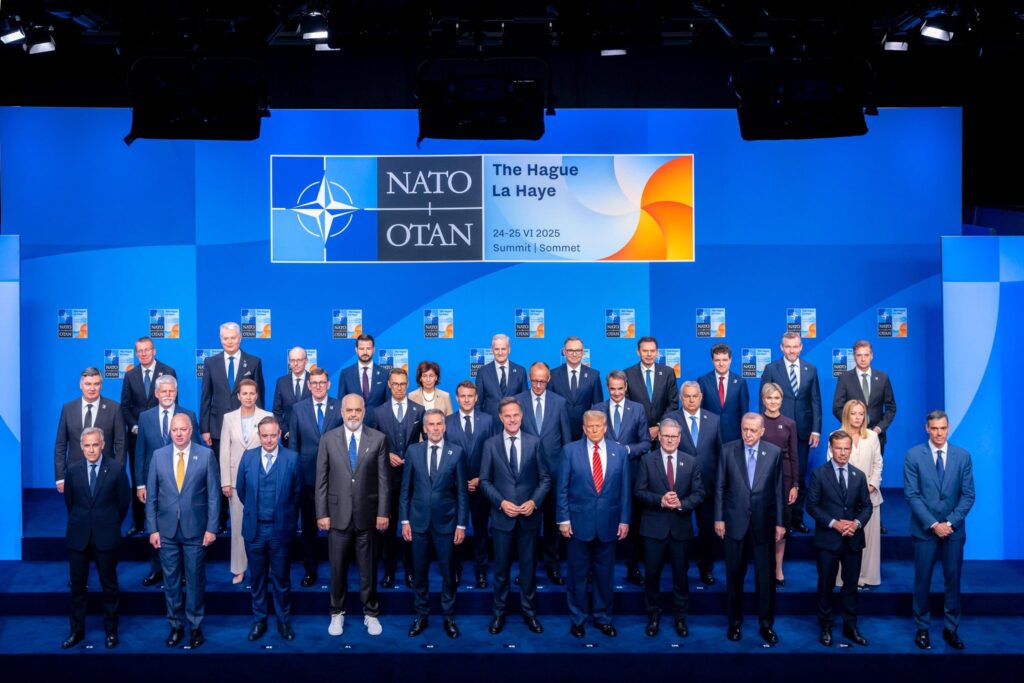NATO Allies Agree On New Defense Spending Commitments
The member nations of the North Atlantic Treaty Alliance announced on the final day of the North Atlantic Council in The Hague that they had agreed on a new commitment to spend 5% of their national gross domestic products on defense spending by 2035.
In the Hague Summit Declaration issued on June 25, NATO says the 5% commitment is split into two components.
In the first component, NATO members will allocate at least 3.5% of GDP annually based on the agreed definition of NATO defence expenditure by 2035 to “resource core defence requirements, and to meet the NATO Capability Targets”, with members agreeing to submit annual plans showing a “credible, incremental path” to reach this goal.
Under the second component, NATO members will budget up to 1.5% of GDP annually to “protect our critical infrastructure, defend our networks, ensure our civil preparedness and resilience, unleash innovation, and strengthen our defence industrial base”.
The declaration adds that “direct contributions towards Ukraine’s defence and its defence industry” by NATO allies will be included when calculating allies’ defense spending under the new commitments. The trajectory and balance of spending under the new plan will be reviewed in 2029, “in light of the strategic environment and updated Capability Targets”.
At the summit’s closing press conference, Secretary General Mark Rutte defended the new commitments as “equalizing” the burden borne by the alliance’s members, saying “we can safely assume” that the United States is “more or less” already spending 5% of its GDP across both components.
During the summit, Spanish Prime Minister Pedro Sanchez reiterated his belief that Spain did not need to spend any additional money on defense to meet its NATO defense commitments, saying it would be an “absolute mistake” for Spain to do so without plans for additional taxes or cuts to social welfare to fund what he claimed would be over 300 billion euros in additional defense spending by 2035 if he had agreed.
Spain stated ahead of the summit that it did not intend to meet the 5% GDP spending target pushed by United States President Donald Trump, with Trump subsequently threatening that he would make Madrid “pay twice as much” during upcoming trade negotiations over tariffs during the summit’s closing press conference.

